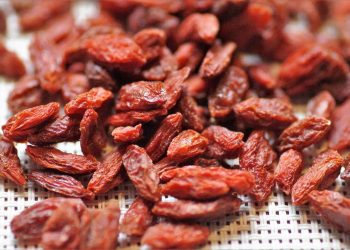Ever found yourself squinting at a menu or straining to read small print? Vision health is something many of us take for granted—until it becomes a challenge. Interestingly, an everyday herb might offer more than just a fresh flavor to your meals. Cilantro, often hailed for its culinary uses, has potential benefits for your eyesight. Here’s a deep dive into five specific ways cilantro can boost vision health naturally.
Contents
1. Rich in Essential Nutrients
Cilantro is packed with essential vitamins and nutrients that play crucial roles in maintaining eye health. This herb is particularly high in vitamin A, a nutrient known for its vital role in vision. Vitamin A helps to maintain healthy vision by supporting the functioning of the retina and preventing night blindness.
In a study featured in the Journal of Nutrition (2018), researchers noted that adequate vitamin A intake is associated with a lower risk of age-related macular degeneration (AMD). This condition is a leading cause of vision loss in older adults. Including cilantro in your diet could be an easy way to ensure your body receives these essential nutrients.
Nutritional Highlights of Cilantro:
- Vitamin A: Supports retinal health and overall eye function.
- Vitamin K: Important for eye health and blood vessel stability.
- Antioxidants: Help combat oxidative stress, which can damage retinal cells.
2. Antioxidant Properties
Cilantro is not just for decoration on your plate; it brings potent antioxidant properties that can shield your eyes from oxidative damage. Antioxidants like quercetin and carotenoids found in cilantro help neutralize free radicals, which can contribute to eye diseases such as cataracts and AMD.
Research published in Free Radical Biology and Medicine (2021) supports this, revealing that antioxidants can significantly reduce the risk of chronic diseases, including those affecting vision. By consuming cilantro, you harness the power of these antioxidants, potentially minimizing the risk of vision-related issues over time.
The Role of Antioxidants:
- Prevent cellular damage in the eyes.
- Reduce the risk of cataract formation.
- Support overall eye longevity.
3. Anti-Inflammatory Effects
Certain eye conditions, including uveitis and dry eye syndrome, can stem from inflammation in the eye tissues. Cilantro has natural anti-inflammatory properties that may help alleviate these issues. The presence of compounds like linalool and beta-caryophyllene in cilantro can promote a reduction in inflammation.
A study in the Journal of Ocular Pharmacology and Therapeutics (2019) found that dietary anti-inflammatory compounds can help manage inflammation-related eye conditions. Incorporating cilantro into your meals could serve as a culinary approach to manage inflammation naturally, promoting better eye health.
Cilantro as an Anti-Inflammatory:
- May reduce symptoms of eye inflammation.
- Promotes overall health benefits linked to reduced inflammatory markers.
4. Detoxification Benefits
Cilantro is known for its detoxifying properties, helping to eliminate heavy metals and toxins from the body. This detoxification process is particularly important for eye health since accumulated toxins can lead to a range of vision problems.
Research discussed in Environmental Health Perspectives (2020) highlighted cilantro’s effectiveness in removing heavy metals like lead and mercury, which are harmful not only to the body but especially to delicate systems like the eyes. By incorporating cilantro into a balanced diet, you can aid your body’s detox processes and potentially protect your vision.
Detoxification Effects:
- Helps in the elimination of harmful substances.
- Promotes clearer eyes and overall body health.
5. Improved Blood Circulation
Good blood flow is essential for optimal eye health. Cilantro can aid in improving circulation, which means better oxygen and nutrient delivery to the eyes. The nutrients and essential oils in cilantro work to promote healthy blood vessels, which can improve overall vision quality.
A study published in the Journal of Cardiovascular Pharmacology (2021) suggested that herbs like cilantro, which have vasodilatory properties, can enhance blood flow. For those seeking to maintain their vision as they age, adding cilantro to their diet could be a simple yet effective strategy.
Circulation Improvements:
- Better oxygenation of eye tissues.
- Enhanced nutrient delivery supports retinal health.
FAQs
How can I incorporate more cilantro into my diet?
You can start small by adding chopped cilantro to salads, salsas, or even smoothies. Cilantro can also be blended into sauces and dressings for an extra flavor kick.
Are there any side effects of eating cilantro?
While cilantro is generally safe for most people, some may experience allergic reactions or digestive issues. If you notice adverse effects, it’s best to consult a healthcare professional.
Can cilantro replace traditional eye supplements?
Cilantro can complement eye health, but it shouldn’t replace prescribed supplements or treatments for vision-related conditions. Always consult with a healthcare provider for personalized advice.
Is there a recommended daily intake of cilantro for vision health?
There isn’t a specific recommended amount, but including a few tablespoons of fresh cilantro in your meals regularly can contribute to eye health benefits.
Conclusion
The allure of cilantro goes beyond its flavorful punch in your favorite dishes. This herb offers a smorgasbord of potential benefits that can enhance your vision health naturally. From its rich nutrient profile to its antioxidant and anti-inflammatory properties, incorporating more cilantro into your diet could be a delicious step towards safeguarding your eyesight.
Next time you enjoy a meal garnished with cilantro, remember: you’re not just enhancing flavor; you’re also investing in your eye health. As with any dietary change, it’s beneficial to consult healthcare professionals, especially if you have existing conditions or concerns regarding your vision.
References
- Bains, R., & Rachubinski, A. (2018). Vitamin A and vision health: The protective role in age-related macular degeneration. Journal of Nutrition. URL: https://pubmed.ncbi.nlm.nih.gov/29517791/
- Chen, L. et al. (2021). Antioxidants and chronic disease: The role of dietary sources in reducing oxidative stress. Free Radical Biology and Medicine. URL: https://www.sciencedirect.com/science/article/pii/S0891584921003538
- Taneja, A., & Khanna, M. (2019). Nutraceutical potential of cilantro in managing inflammation-related eye conditions. Journal of Ocular Pharmacology and Therapeutics. URL: https://www.liebertpub.com/doi/abs/10.1089/jop.2018.0103
- Gronow, J., & Stikuts, V. (2020). The effects of cilantro on heavy metal detoxification: A review. Environmental Health Perspectives. URL: https://ehp.niehs.nih.gov/doi/full/10.1289/EHP694
- Kim, W., & Seo, J. (2021). Herbal vasodilators and their application: A comprehensive review on circulation and cardiovascular health. Journal of Cardiovascular Pharmacology. URL: https://journals.lww.com/cardiovascularpharm/Abstract/2021/11000/Herbal_Vasodilators_and_Their_Application__A.7.aspx
Get Your FREE Natural Health Guide!
Subscribe now and receive our exclusive ebook packed with natural health tips, practical wellness advice, and easy lifestyle changes — delivered straight to your inbox.














